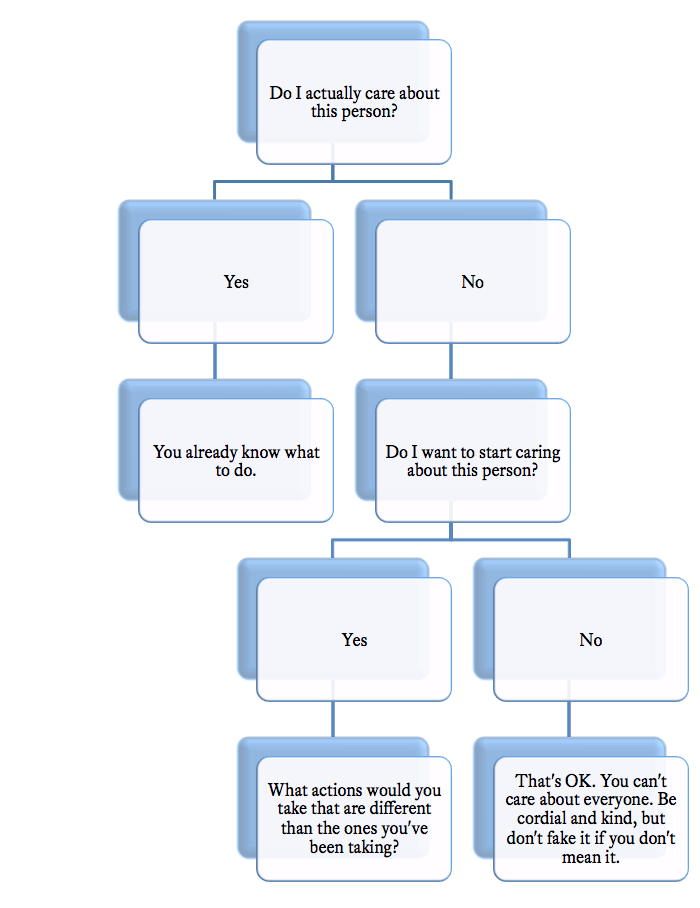[ad_1]
A number of weeks in the past, a consumer forwarded an e mail from one other division of their group that had beforehand acquired criticism for being a bit cranky on e mail messages. This time, the e-mail began with:
I hope you might be having an awesome day right now.
The rest of the e-mail was simply as cranky as all of the others messages I’d seen from them earlier than.
It isn’t laborious to guess at what occurred. Somebody in all probability acquired well-deserved criticism for cranky emails and determined to do one thing. A well-intended line of pondering might need gone like this: “Hey, we have to repair this drawback quick. Hmmm…I do know! Let’s inform everybody that they should say one thing good in the beginning of all emails.”
The consequence was jarring in print. The declare firstly was utterly incongruent with the message. It might have been higher if the author had skipped the try all collectively.
The “resolution” addressed the symptom, not the issue.
In fact, I’ve been responsible of this myself. I’ve spent years educating listening abilities in coaching courses and workshops. For essentially the most half, these workshops have targeted on the sensible instruments of listening: eye contact, facial expressions, with the ability to repeat again to the opposite individual what was stated, and so forth., and so forth.
All the above are fairly good instruments and assist folks seem as if they’re listening higher. But, I’ve typically failed to emphasise the central level:
The actual strategy to show caring is to really care.
If you wish to see this in motion, spend a couple of minutes observing a pair work together which have simply fallen in love. They don’t must be reminded to say one thing good in the beginning of the dialog, or to make eye contact, or to pay attention nicely.
You’ll see one thing not all that completely different when you observe somebody throughout their first week of a brand new job. Likelihood is they do fairly good job of listening, beginning new relationships with a smile, and work laborious to satisfy some preliminary targets.
In each conditions, folks care so much.
The issue for many of us isn’t that we don’t know how you can care. In actual fact, most of us are masters at caring beneath the best circumstances and circumstances.
Most of us simply don’t prioritize caring. We assume that we’ve carried out sufficient already and {that a} little bit of automation round caring will care for a lot of the ongoing stuff.
Should you, like me, suspect you fall into this lure too, right here’s a flowchart with three questions you’ll be able to ask your self to assist convey readability on what to do:
Make investments real perspective and energy in caring in regards to the folks you wish to care about and keep away from faking it with these you don’t.
What have you ever seen a frontrunner try this demonstrates real care?
[ad_2]



